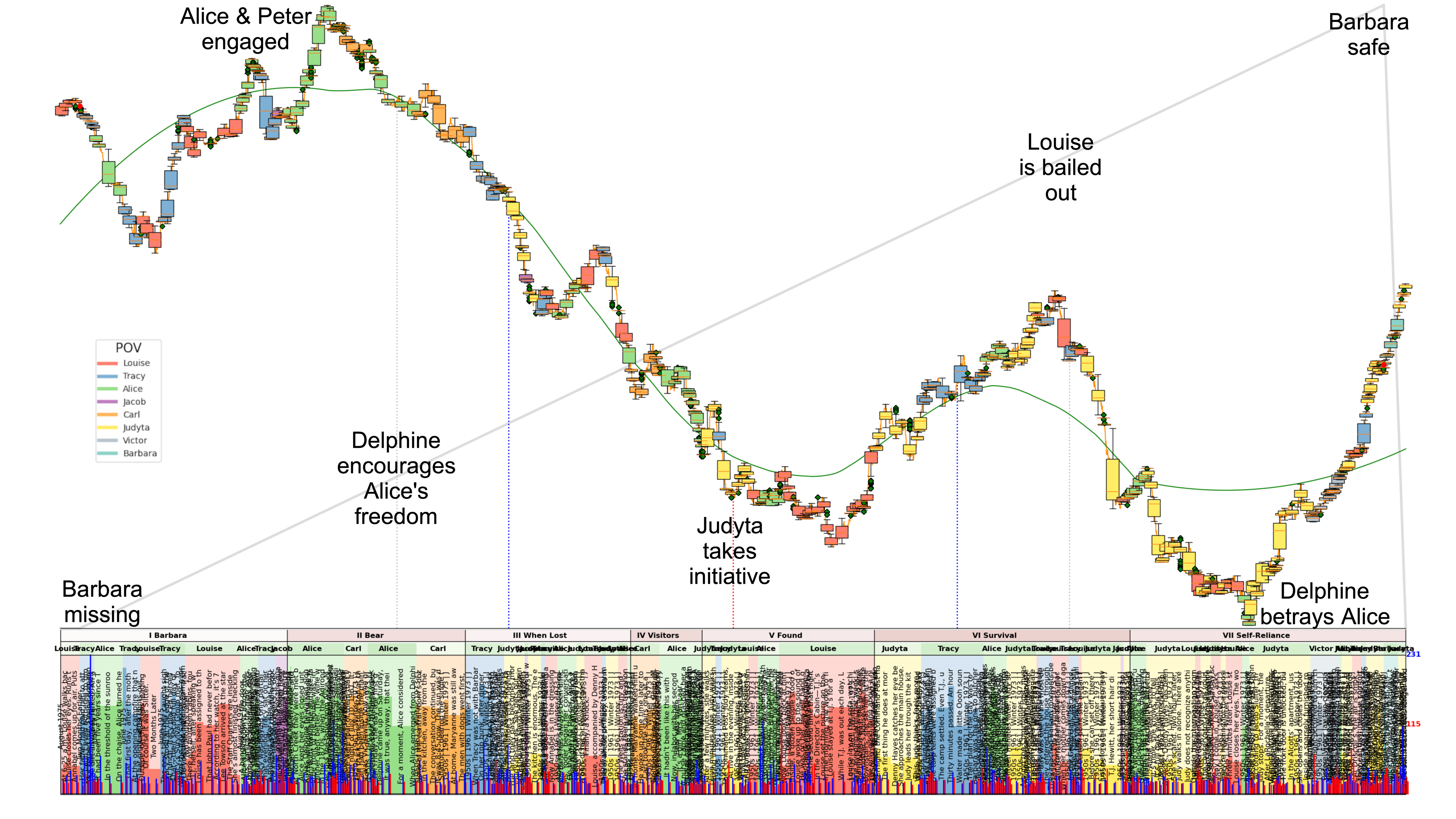Agenda
- Why We're Here / Roundtable Rules
- Introduction to Literary Forensics
- Group Discussion
- Further Study
Why We're Here
We writers want to improve our craft
by reading like a writer
We learn from each other
using Literary Forensics
Roundtable Rules
Always refer back to the book
Practice active listening & serendipity
Every feeling and observation is valid...
but not every conclusion
Always refer back to the book
Reading Teaches Writing
Meet today's author: Liz Moore
- Moore grew up in a suburb of Boston, and earned a degree from Barnard College and an MFA in creative writing from Hunter College, both in New York City.
- Both sets of grandparents were from the Adirondacks, where Moore summered. She attended camp only once, aged 12.
- A folk guitarist, Moore fronted the Liz Moore band while in college, and she released a solo record titled Backyards in 2007. Her musical experience inspired her first novel, The Words of Every Song (2007).
- Moore was a winner of the 2014-2015 Rome Prize in Literature.
- Her fourth novel, the New York Times bestselling Long Bright River (2020) was a Good Morning America Book Club pick, a Barack Obama pick, and was made into a 2025 Peacock TV mini-series starring Amanda Seyfried.
- She is currently Director of the MFA program in Creative Writing at Temple University in Philadelphia, where she lives with her husband and two children.
- The God of the Woods (2024) is Moore's fifth novel.
"The truth can be buried, but it will always find a way to resurface.”
—Liz Moore
What do you feel?
What in the book elicited that feeling?
Every feeling and observation is valid...
but every conclusion should be questioned
We practice serendipity
- nothing is too crazy
Always refer back to the book
What do you notice?

Writing The God of the Woods
- Moore has always loved reading mysteries, beginning with Agatha Christie, and continuing to Walter Mosely, Dennis Lehane, and Tana French.
- She is a pantser, interested in themes of found family, created communities with strangers introduced, wealth and class, and perceiving one's place in the world.
- She needs the questions she raises to be answered not just logically but thematically. She often pauses to ask: Why am I writing this book, and why now? What feels new and important? If stuck, she sometimes retreats to the most recent fork in the road of her writing.
- Moore began knowing only that the Van Laar’s daughter would disappear. Moore discovered the answers along with the investigators.
- Louise's POV occurred to her first. Louise originated from a similar character in a short story, Shy, Shy, that Moore wrote 10 years earlier.
- She keeps running chronology of birth, death, key life events to help as she jumps around in time.
- Started using Scrivener, but retreated to Word when Scrivener messed up all of her formatting.
- Alice's story was the key to unlocking end of the novel—the "first domino" leading to the ending that replaced many other logically satisfying endings which lacked emotional or thematic resonance.
- Hardest beat to write? How TJ & Barbara framed John Paul McClellan.
Stats & Background
- Marketing: Mystery, Thriller & Suspense Literary Fiction (#1); Psychological Fiction (#5); Historical Literary Fiction (#7); Mysteries (#8); Psychological Thrillers; Literary Fiction
- Genre: Realistic Historical Long-Form Archplot
- Print Pages: 496; Word count: 129,478
Reading Grade: 6th; Avg. wds/sent.: 9.64
Lexical Density: 48.32; Flesch Reading Ease: 77.97 - POV: multiple; Person: 3rd; Tense: Past
- Publish date: July 2, 2024
- Publisher: Riverhead Books
- Audio book length: (14 hours, 35 mins)
- Narrator: Saskia Maarleveld
- Recognition: NYT: Best Seller, Notable Book of 2024, Best Thriller of 2024, Best Crime Novel of 2024; People Magazine's #1 book of the year; an NPR "Books We Love" 2024; Time magazine's must-read 100 books of 2024

